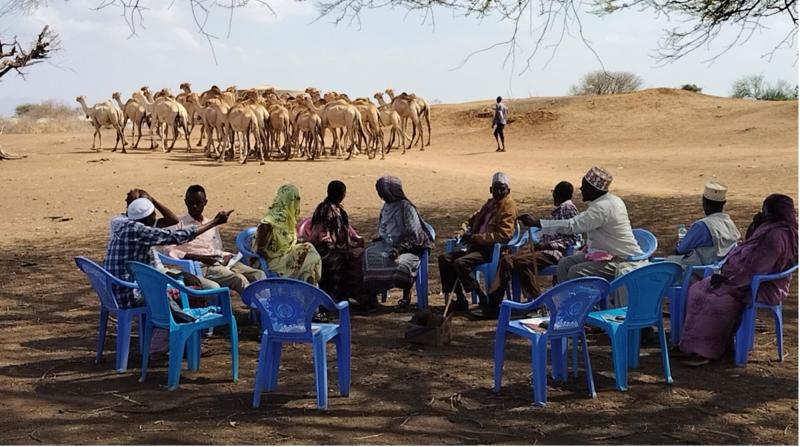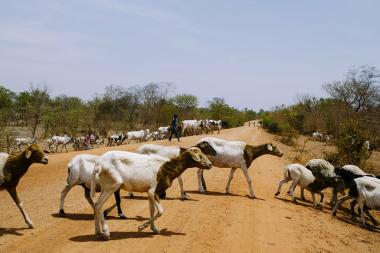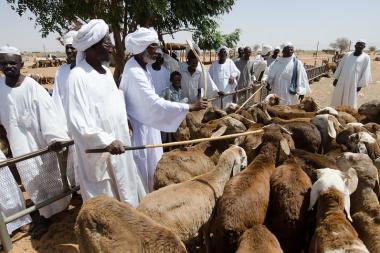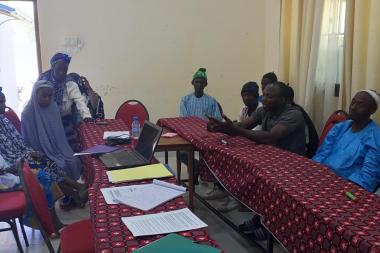Perceptions of land tenure security in pastoral areas in Marsabit, Kenya
This report aims to deepen understanding of land tenure in pastoral lands under collective ownership, taking a case from northern Marsabit, Kenya.
Land tenure in pastoral areas is typically vested in the collective, where the rights of individuals and households to graze and water their animals exist alongside rights of the collective as a whole. The collective sets guidelines and rules on how its members use resources. We know pressures on pastoral lands are mounting from a rising population and from demand to appropriate grazing commons for other uses, such as conservation areas, mining, and cropping where irrigation is possible. These pressures can lead to pastoralists losing access to the graze and water they need for their livelihoods, as well as to conflict over resources.
This report focuses on 550 households in the community of Waldaa who live in an area of 600 square kilometres in the north of Marsabit, close to the border with Ethiopia.
We used interdisciplinary, participatory methods, involving community mapping of natural resources and their management, three focus groups, six interviews with key informants, and participant observation.
The findings show that for close to 50 years, the Waldaa community has retained rights to its land and natural resources without legal registration. Pastoralism defies permanent designation of rights: pastoralists use complex, messy, but effective, patterns of access to grazing. Vulnerable groups, such as widows and orphans, said they enjoy equal rights within the group. When systems function, all claims and rights can be realised without infringing upon others, whether in collectives or among individuals. However, tenure and management of the land is challenged variously by:
- The Community Land Act (2016) and the drive to register community and trust lands, both collectively and individually;
- Unpredictable weather with shorter times for wet-season grazing, putting more strain on grazing and water; and
- Rising population and settlement.
These pressures may favour the privatisation of collective lands.
Our findings emphasise the need to adopt community-based land governance and the strengthening of institutions to promote the inclusiveness of traditional governance. Changes should start with community discussion, and discussion that is inclusive.



